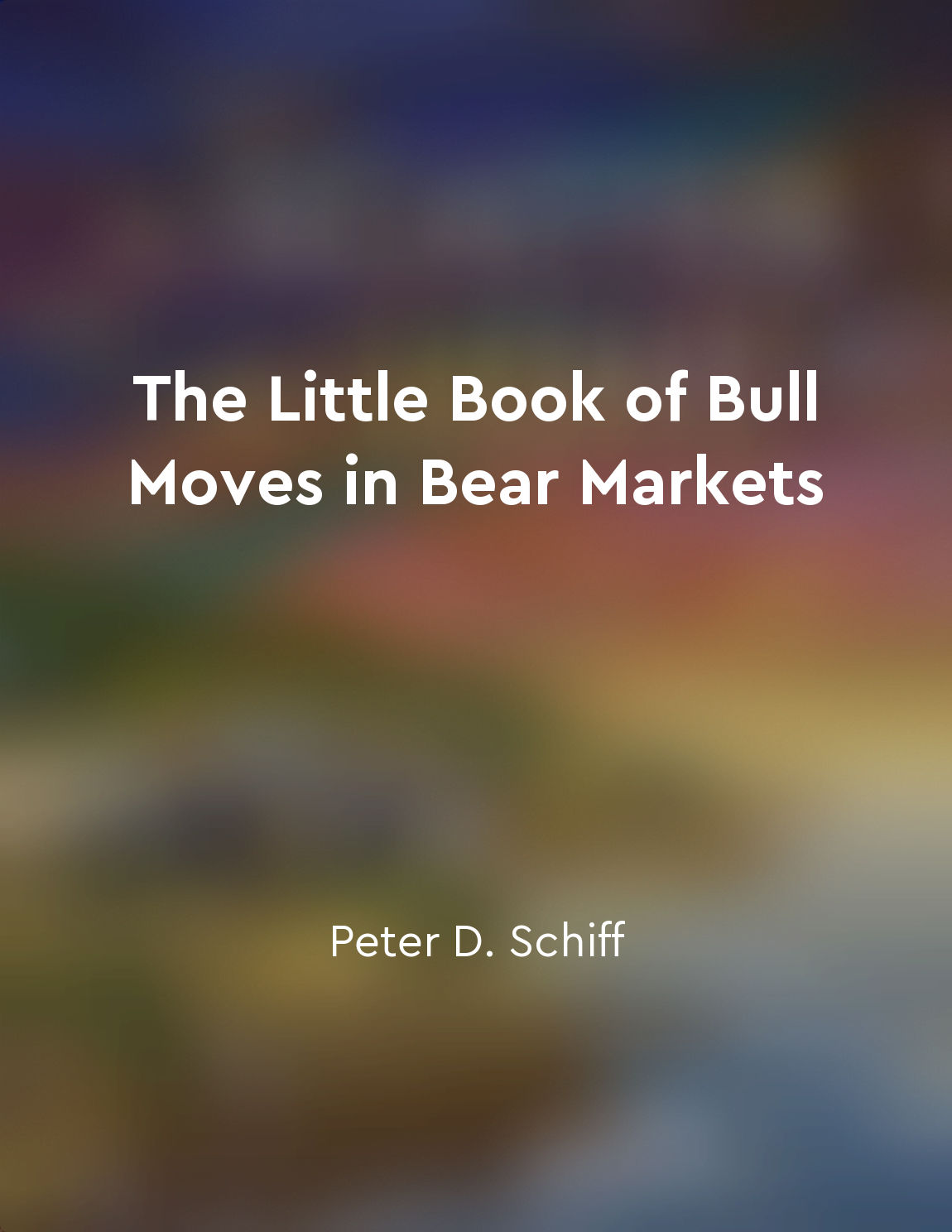Speculation plays a role in market fluctuations from "summary" of Business Cycles and Equilibrium by Fischer Black
Speculation can have a significant impact on market fluctuations. When people anticipate future prices, they may buy or sell assets based on their expectations. This can lead to changes in prices that do not reflect any new information about the assets themselves. Instead, these changes are driven by the beliefs and actions of market participants. In some cases, speculation can create self-fulfilling prophecies. If enough people believe that a particular asset will increase in value, they may all rush to buy it, driving up the price. This, in turn, may attract even more buyers, causing the price to rise even further. Eventually, the price may reach a level that is not supported by the underlying fundamentals of the asset. Conversely, speculation can also lead to sharp declines in asset prices. If investors become pessimistic about the future prospects of an asset, they may sell it in anticipation of lower prices. This selling pressure can cause prices to plummet, even if there is no concrete reason for the decline. Speculation can also amplify market fluctuations. When prices are rising, speculators may jump on the bandwagon, buying assets in the hope of selling them at a higher price later. This buying pressure can drive prices even higher, creating a bubble that eventually bursts. Similarly, when prices are falling, speculators may exacerbate the decline by selling assets in a panic, causing prices to spiral downward.- Speculation plays a crucial role in market fluctuations. By influencing investors' beliefs and actions, speculation can cause prices to deviate from their fundamental values. This can lead to periods of irrational exuberance and pessimism, resulting in volatile and unpredictable market behavior.
Similar Posts
Longterm investing is key to success
Long-term investing is the cornerstone of successful investing. In a world of instant gratification and short-term thinking, it...
Price is what you pay, value is what you get
In the world of investing, it is crucial to understand the distinction between price and value. Price is simply what you pay fo...
International debt
International debt is a complex web of financial obligations that ties together nations across the globe. It is not a static ph...
Support and resistance levels play a crucial role in trading
Support and resistance levels are key components of technical analysis that are essential to understanding market dynamics and ...
Differentiate between price and value
Price and value are two fundamental concepts in security analysis that are often misunderstood and wrongly used interchangeably...

Market timing is difficult and often unsuccessful
Timing the market is a fool's errand, plain and simple. Many people believe they possess the clairvoyance required to predict w...
Technology has transformed the financial industry
Over the past few decades, technological advancements have revolutionized the financial industry in ways that were previously u...
Bitcoin represents a breakthrough in the technology of money
Bitcoin's significance lies in its ability to revolutionize the way we perceive and use money. Unlike traditional currencies co...
Expectations determine market outcomes
The driving force behind market outcomes is the collective expectations of market participants. These expectations are influenc...
Market timing is futile
The idea that investors can outsmart the market by predicting when to buy and sell stocks is a common fallacy. Many people beli...

